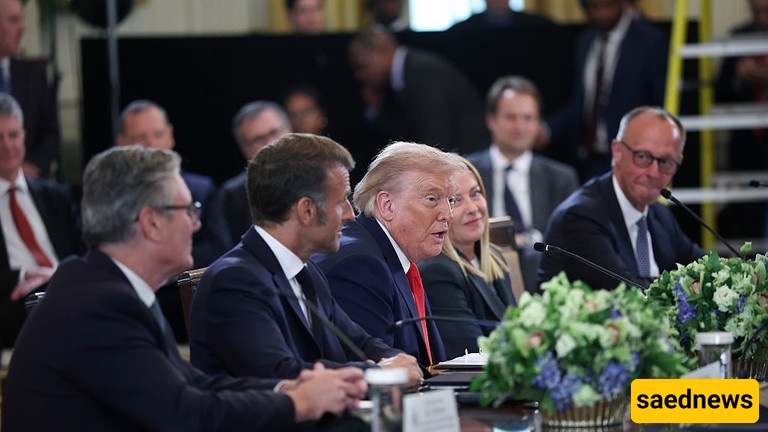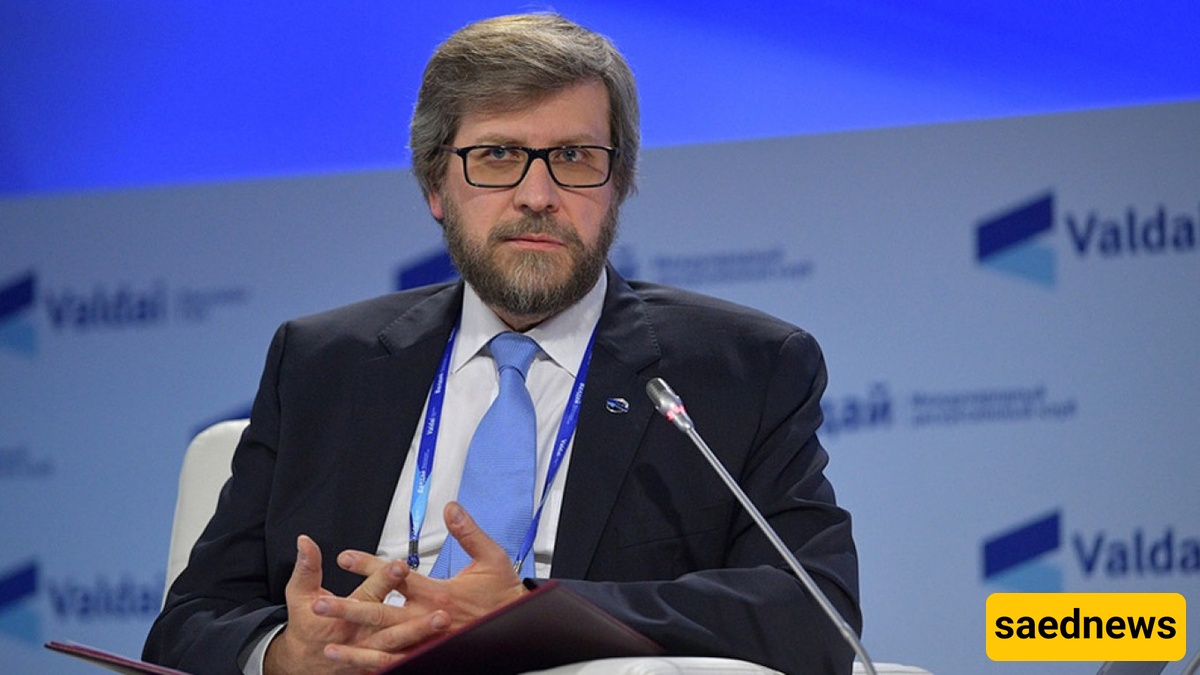SAEDNEWS: Fyodor Lukyanov, a prominent Russian analyst, believes that Donald Trump, in recent meetings with European leaders, openly humiliated the European Union and reduced it merely to a tool for funding Washington.

According to SaedNews, citing Russia Today, Fyodor Lukyanov, a well-known Russian analyst and editor of Russia in Global Affairs, emphasized in his recent analysis that Donald Trump, in his interactions with European leaders, significantly diminished the status of the European Union, practically turning it into a financial instrument for advancing Washington’s goals. From Lukyanov’s perspective, this not only reflects a shift in U.S. policy toward European allies but also represents a deep failure in the traditional structure of the Transatlantic alliance after the Cold War.

He stated that the recent meetings between Trump and European leaders demonstrated, more than traditional diplomacy based on mutual cooperation, a display of U.S. power and dominance. Unlike previous presidents, Trump made no effort to hide his dissatisfaction with Europe’s role in global affairs and explicitly presented Europe as a tool to cover Washington’s strategic costs. Lukyanov points out that Europe no longer holds the status of an independent partner and that European countries now appear as followers with no choice but to comply with U.S. decisions.
The Russian analyst further notes that the process of subordinating Europe began during Biden’s presidency. At that time, the U.S. placed the primary burden of managing crises, particularly regarding Russia and Ukraine, on European countries, while benefiting politically and economically from Western support. However, Trump expressed this situation openly and bluntly, demonstrating that he not only expected no mutual cooperation but also required Europe to play the role of a resource provider and refrain from independent strategic decision-making. Lukyanov considers this approach as implementing a policy whose essence is the public humiliation of Europe’s position on the international stage.
From his perspective, Trump’s return to the White House would further destabilize the Transatlantic alliance and put many European leaders in a position where, despite their clear dissatisfaction, they would be forced to follow U.S. policies. While this situation may offer short-term benefits for the United States, it also carries long-term consequences, including weakening Europe’s trust in cooperating with the U.S. and widening the gap among Western allies.
Lukyanov: Trump’s Approach Could Reshape Europe’s Role and Global Influence
Lukyanov also warns that this trend could lead to structural changes within NATO and the European Union. European countries, witnessing such behavior from Washington, may move toward strengthening self-reliance and enhancing regional cooperation to maintain their independence when facing external pressures. He believes that Europe cannot remain merely a financial tool for the United States; otherwise, it would seriously lose its political and economic influence.
His analysis specifically addresses the economic and military relations between the U.S. and Europe. Lukyanov notes that Trump openly exerted financial and economic pressure on Europe, demanding that European countries bear a greater share of military budgets and strategic costs. In his view, this is not only a tool to impose U.S. policies but also a method to reduce European independence.
On the other hand, Lukyanov believes that Europe’s response to Trump’s approach is a combination of silence and subtle protests. Many European leaders try to preserve their position within global developments without causing tension, but this situation implies acceptance of a reduced independent role. In other words, Europe currently finds itself in a position where it can neither fully resist Washington nor regain its former influence.
The analysis also extends to regional and global geopolitical issues. Lukyanov argues that the weakening of Europe creates opportunities for other international actors, including Russia and China. When Europe is weakened within the traditional Western alliance framework, these countries can play a greater role in global affairs and expand their influence in areas previously under Western control.
Ultimately, Lukyanov concludes that Trump’s approach to Europe, while potentially increasing U.S. leverage in the short term, could weaken strategic alliances and make America’s position in Europe and the world more fragile in the long term. He emphasizes that Europe must find ways to preserve its independence and reduce financial and political dependence on Washington, otherwise its role in the global order will be seriously diminished.
Lukyanov’s analysis is not limited to Trump’s policies; it reflects broader concerns about the future of international cooperation and Europe’s place in global affairs. He shows that changes in U.S. behavior can destabilize the old structures of the Western alliance and highlight the need to rethink common European policies.
This analytical perspective also underscores the importance of a precise understanding of relations among global powers. When a major actor, namely the U.S., openly limits its allies to subordinate and financial roles, other countries are compelled to adopt new strategies to preserve their security and influence. This is particularly important in economic, military, and political matters and can alter the balance of power internationally.
From Lukyanov’s perspective, Trump’s behavior toward Europe exemplifies power projection and economic pressure policy, with wide-ranging consequences for the global order. He argues that this approach directly diminishes Europe’s independence and influence while consolidating the U.S. as the dominant power, although this consolidation may come at the cost of creating distance and distrust among allies.
In his final assessment, Lukyanov emphasizes that Europe must adopt a balanced strategy to maintain its position in the global order: continue cooperation with the U.S. while strengthening its own financial and political independence to remain resilient against pressures. He warns that the continuation of the current trend could gradually reduce Europe’s role in global politics and increase the influence of international rivals, a situation with significant implications for global stability and security.

